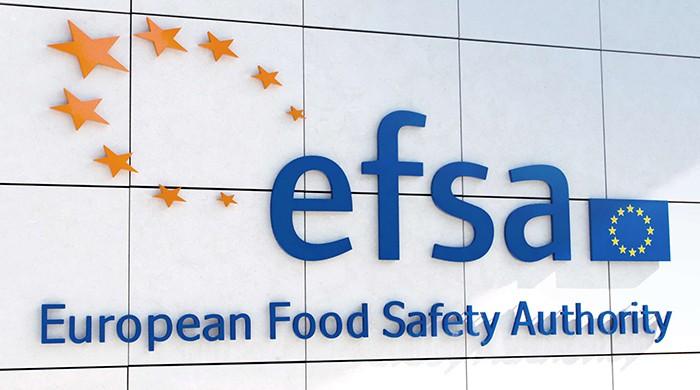Clash of science and politics 'dangerous': EU food safety chief
The Green alliance asked the EFSA to withdraw its assessment
April 24, 2017

LONDON: Politicians who attack the EU agency that ruled the weedkiller glyphosate probably does not cause cancer are in danger of undermining the effectiveness of a body that is key to keeping Europeans safe, its chief warned.
Bernhard Url, executive director of the European Food Safety Authority (EFSA), said his agency is facing unprecedented criticism after concluding in November 2015 that glyphosate - one of the world's most widely used pesticides and an ingredient in Monsanto's big seller Roundup – was "unlikely to pose a carcinogenic hazard to humans".
Attempts to discredit his agency over its assessment were "unacceptable and short-sighted", he told Reuters in a rare interview, accusing his critics of undermining science to pursue a "political agenda".
"If political actors discredit scientific organisations because they don't like the outcome in one out of 100 cases, they diminish the reputation of an organisation that they as policymakers will need to rely on in future," he said. "From a political perspective it's very unwise".
An international dispute over glyphosate's possible risks to human health has prompted investigations by congressional committees in the United States, and in Europe has forced a delay to a re-licensing decision for Roundup. The EU decision is now due by the end of 2017.
The row erupted after the International Agency for Research on Cancer, a semi-autonomous part of the World Health Organization (WHO), said in March 2015 that glyphosate was "probably carcinogenic".
Many other regulators besides the EFSA have since determined it does not pose a cancer risk, however, including the European Chemical Agency (ECHA), the U.S. Environmental Protection Agency (EPA), and a joint committee of the WHO and the U.N.'s Food and Agriculture Organization (FAO).
Opposition in the European Union has been driven by the European Parliament's Greens-European Free Alliance and by others, including Greenpeace and a group of scientists led by Christopher Portier from the U.S.-based non-governmental organisation, the Environmental Defense Fund.
Greenpeace called the EFSA review a "whitewash" that "defied the world's most authoritative cancer agency in order to please corporations like Monsanto". Portier and more than 90 scientists signed an open letter to European Health Commissioner urging EU authorities to ignore the EFSA's opinion.
The Green alliance asked the EFSA to withdraw its assessment and last month urged European Commission President Jean-Claude Juncker to delay a decision on glyphosate until the dispute has been sorted out. It says the EFSA review was unduly influenced by industry-backed studies.
Members of the European parliament (MEPs) have "serious concerns regarding the influence of industry on some of the studies used in their assessment," Bart Staes, the alliance's food safety spokesperson, told Reuters in an email on Friday.
Several MEPs have asked for all the studies included in the EFSA assessment to be made public, which it says is impossible because doing so would contravene European law protecting corporate intellectual property. The agency has, however, published some 6,000 pages of data and analyses considered in the assessment, according to Url.
POLITICAL AGENDA
Url asked why complaints about EFSA's work seemed to emerge only in response to opinions that clashed with a particular "political agenda".
The same political groups protesting now applauded the EFSA when it said in 2013 that pesticides known as neonicotinoids posed a risk to honeybee health, he said.
"Then they said EFSA had done a great and important job and made a big contribution to the protection of public health.
"But when the same system, the same people, using the same methods, produces something that doesn't fit their political agenda - an agenda that could include for example a different way of doing agriculture in Europe, or banning pesticides... they try to discredit the scientific organization."
The EU imposed restrictions on the use of neonicotinoid chemicals - made and sold by various companies including Bayer CropScience and Syngenta - after EFSA pointed to risks for bees, which are crucial for pollinating crops.
Since its foundation 15 years ago EFSA has issued around 8,000 scientific opinions on subjects from food additives such as acacia gum and lecithin, to plastic containers, to livestock illnesses such as African swine fever and lumpy skin disease.
The vast majority of these have gone unchallenged, Url said, and have been used as intended to inform policymakers as they draft legislation on how the benefits and risks of such substances should be managed in foods for European consumers.
Staes maintained his group values "the important role that ESFA plays in contributing towards the health and safety of the European public" and said it and the ECHA should be supported with more funding and better access to publicly-funded studies as "a welcome counter balance to industry driven research".
Asked why he thinks glyphosate has generated such an intense battle, Url said:
"Glyphosate is a very widely used weedkiller; it's linked to Monsanto; Monsanto is linked to genetically modified organisms; so it's about money, obviously, but also about the way agriculture is done in Europe. There are many people who say we shouldn't use large amounts of agrochemicals."
Url said the EU's current system for risk management "works", and as a result, food is generally safe and public health is protected. Undermining its credibility poses risks for public health and for society, he argued.
"If trust in scientific advice is diminished, the likelihood will be higher that ... the decisions taken will not be the best for society," he said.









